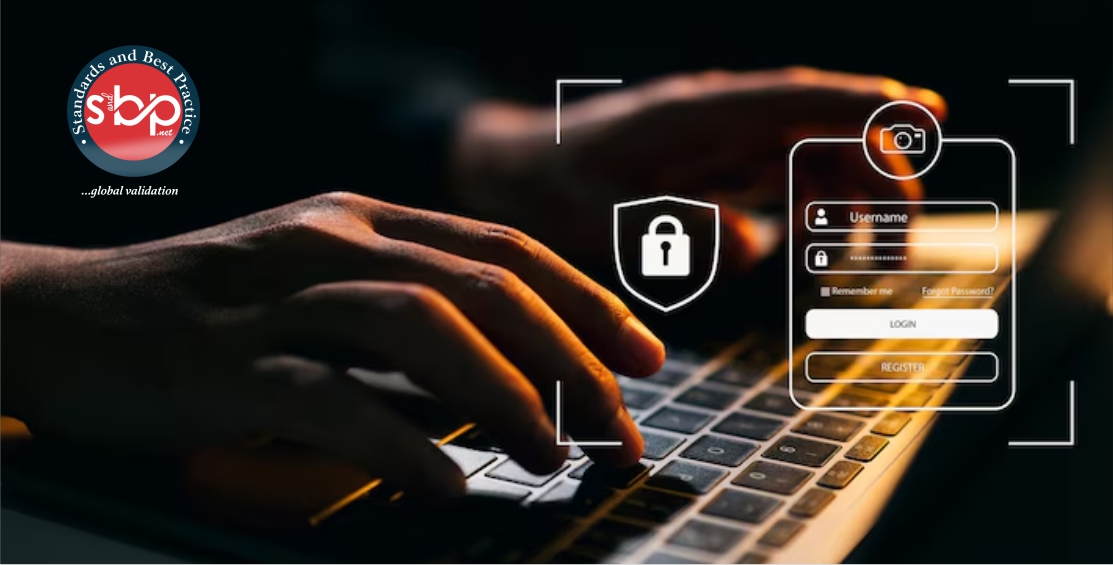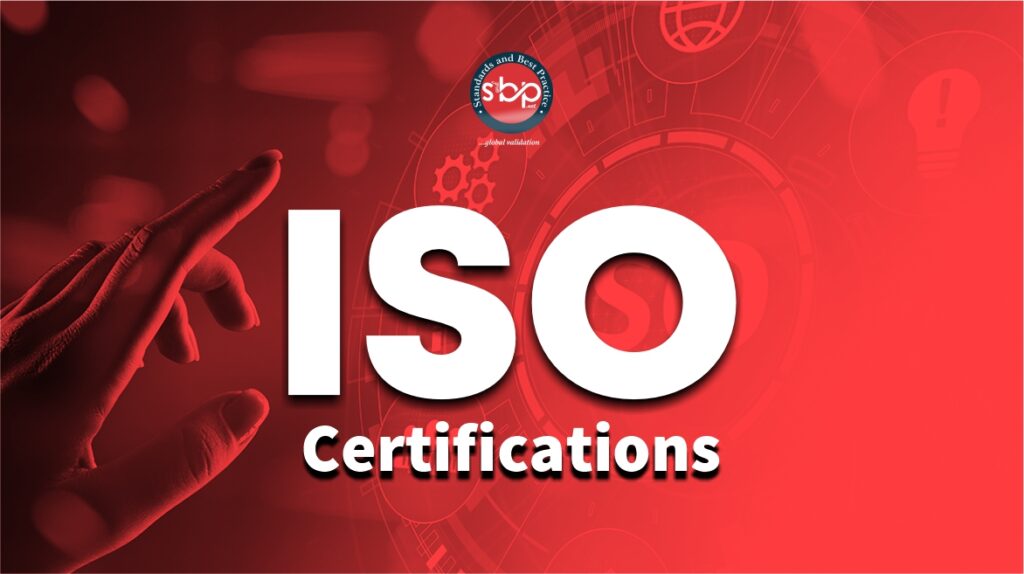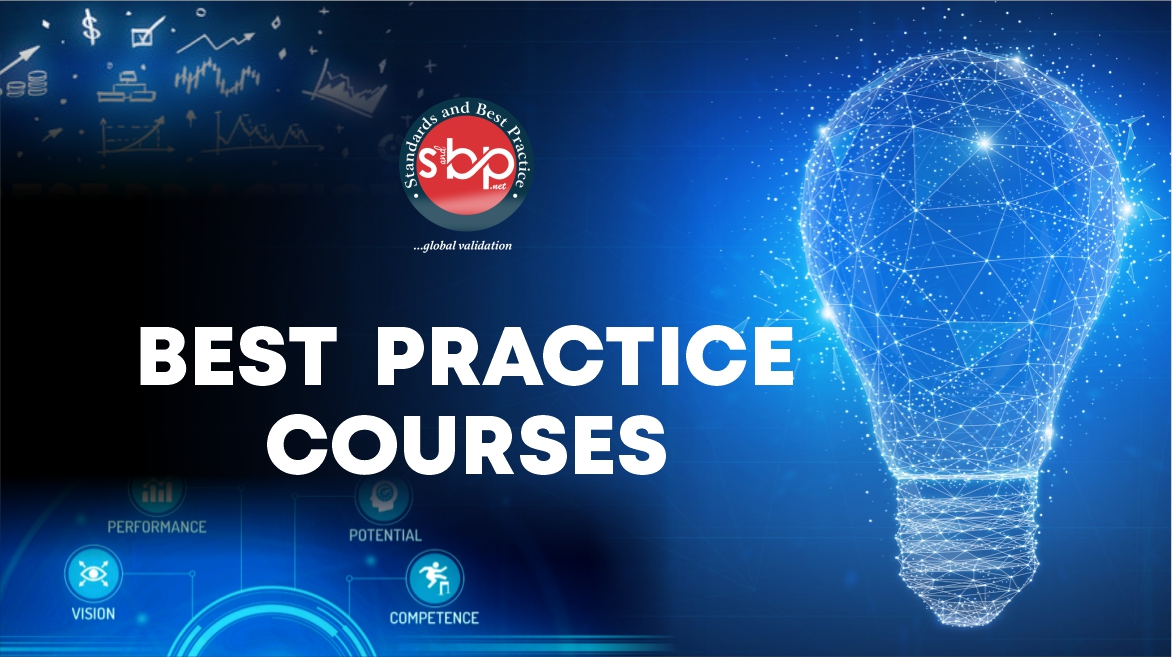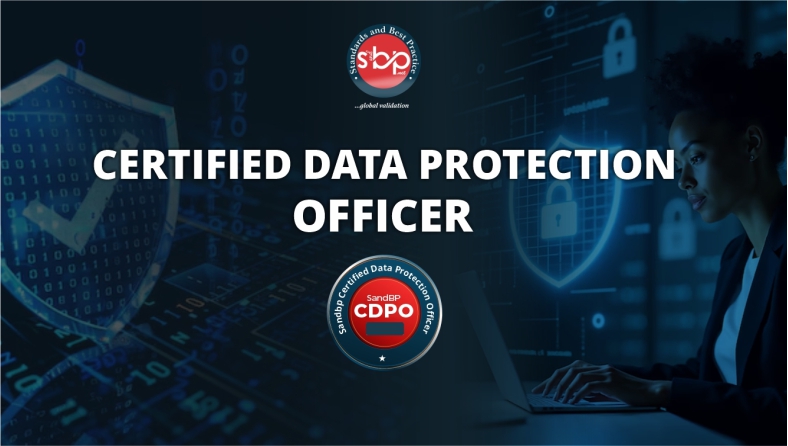CERTIFIED DATA PROTECTION
OFFICER

Overview
CERTIFIED DATA PROTECTION OFFICER (CDPO) certification is a professional designation that validates an individual’s knowledge and skills in data protection and privacy. It is designed to equip professionals with the necessary expertise to effectively manage data protection and privacy within organizations, particularly in light of the increasing regulatory landscape.
As data protection is becoming more and more important, the need for organizations to protect these data is also constantly increasing. Besides violating the fundamental rights and freedoms of persons, not complying with the data protection regulations can lead to risky situations that could harm an organization’s credibility, reputation, and financial status. This is where your skills as a data protection officer come into place.
The Certified Data Protection Officer training course will help you acquire the knowledge and skills to serve as a Data Protection Officer (DPO) to help organizations ensure compliance with the General Data Protection Regulation (GDPR) requirements.
Benefits of CDPO Certification
A CDPO certification provides a comprehensive understanding of data protection regulations, principles, and best practices.
The CDPO certification validates your expertise in data protection, increasing your credibility and recognition within the industry.
A CDPO can help your organization ensure compliance with data protection regulations, reducing the risk of fines and penalties.
Global Recognition.
Certified Data Protection Officer (CDPO)
Training validates an individual's knowledge and skills in data protection and privacy. It is designed to equip professionals with the necessary expertise to effectively manage data protection and privacy within organizations, particularly in light of the increasing regulatory landscape. The Certified Data Protection Officer training course will help you acquire the knowledge and skills to serve as a Data Protection Officer (DPO) to help organizations ensure compliance with the General Data Protection Regulation (GDPR) requirements.
After mastering all the necessary concepts of CERTIFIED DATA PROTECTION OFFICER (CDPO), participants can sit for the exam. Once participants meet the pass mark, he/she will be given “SANDBP CERTIFIED DATA PROTECTION OFFICER (CDPO)” credential. By holding a SANDBP CERTIFIED DATA PROTECTION OFFICER (CDPO) Certificate, the participant can be able to demonstrate that he/she has the practical knowledge and professional capabilities to ensure compliance with the General Data Protection Regulation (GDPR) requirements in an organization.
- Part 1: General Overview of Data Protection
- Introduction to Data Protection
- Key Principles of Data Protection
- Roles and Responsibilities in Data Protection
- Rights of Data Subjects
- Data Protection Impact Assessments (DPIAs)
- Data Breach Management
- Technologies and Documentation for Data Protection
- Part 2: General Data Protection Regulation (GDPR)
- Overview of GDPR
- GDPR Compliance Requirements
- Data Security
- Cross-Border Data Transfers
- Enforcement and Penalties
- Certification Exam
- PRE-REQUISITE: Foundational understanding of the CDPO and comprehensive knowledge of data protection requirements
Terms of Certification
Candidates who score 70% and above in the examination will be issued an SANDBP certificate.
In case you do not meet the pass mark, you can retake the exam for FREE after the first attempt while subsequent retakes would come at a cost.
Criteria for Suspending and Withdrawing the Scope of Certification
SANDBP reserves the right to suspend or revoke certifications for reasons including fraud, deceit, or submission of inaccurate data.
Process:
Certificate holders will be notified by certified mail if evidence of charges is found.
They may present their defense in writing to the certification board.
The board will review the case and decide to uphold or deny the suspension/revocation.
Causes for Suspension/Withdrawal:
Improper use of certificates/logos
Malpractices
Providing false information
Ineligibility for applied examinations
Voluntary suspension requests
Recertification Process
Recertification ensures that certified individuals maintain their knowledge and skills in line with the latest standards and practices. It is a critical process that reaffirms the competency of certified professionals, allowing them to stay current with evolving industry standards.
Criteria for Recertification:
Transition Exam:
- Individuals must take and pass a transition exam when there is a change in the current version of the certification standard.
- The transition exam focuses on the updates and changes in the new version of the standard, ensuring that certified individuals are knowledgeable about the latest requirements and practices.
Adherence to Code of Ethics:
Certified individuals must adhere to a code of ethics, demonstrating professionalism and integrity in their practice. Any violations of the code of ethics may result in the suspension or revocation of certification
Payment of Recertification Fees:
Payment of the required recertification fees is necessary to process and validate the renewal of certification.
Introduction
To maintain the integrity and fairness of our examinations, specific guidelines have been established for proctoring. These rules apply to all candidates and must be adhered to strictly. Failure to comply may result in disqualification or other disciplinary actions.
General Requirements
Technology Setup
- Device: Use a desktop or laptop with a working webcam and microphone. Mobile phones or tablets are not permitted unless explicitly allowed.
- Internet: Ensure a stable internet connection with sufficient bandwidth to stream video and audio continuously.
- Browser: Use the designated browser as specified by the exam platform.
- Power Backup: Ensure your device is fully charged and/or connected to a reliable power source.
Environmental Setup
- Location: Choose a quiet, well-lit room with minimal distractions.
- Background: Ensure the background is plain and free of any clutter or distractions.
- Privacy: No other person is allowed in the room during the examination.
Pre-Exam Procedures
Present a valid government-issued photo ID or institution-approved identification document. Ensure that no unauthorized materials (e.g., books, notes, or electronic devices) are present.
During the Exam
Behavior Guideline
- Focus on the Screen: Avoid looking away from the screen for extended periods.
- No Assistance: You are prohibited from receiving help from anyone or any external resource.
Prohibited Items
- Electronic devices such as mobile phones, tablets, smartwatches, and earphones.
- Books, notes, or any other study material unless explicitly permitted.
Proctor Interaction
- Follow all instructions given by the proctor.
- If contacted for clarification or rule enforcement, respond promptly and cooperatively.
- Inform the proctor immediately in case of technical issues.
Post-Exam Procedures
Submission
- Ensure your exam responses are submitted within the designated time.
- Do not close the exam window or disconnect until you receive confirmation that your submission is successful.
Feedback
- Report any technical issues or concerns to the designated support team immediately aƜer the exam.
Violations and Consequences
Examples of Violations
- Using unauthorized materials or devices.
- Attempting to impersonate another candidate.
- Engaging in suspicious behavior (e.g., frequent movement, talking).
- Disconnecting intentionally without justification.
Consequences
- Warnings for minor infractions.
- Disqualification of the exam attempt for major violations.
Support and Troubleshooting
Contact the technical support team in case of any issues with logging in, connectivity, or proctoring tools. (support@sandbp.net)







